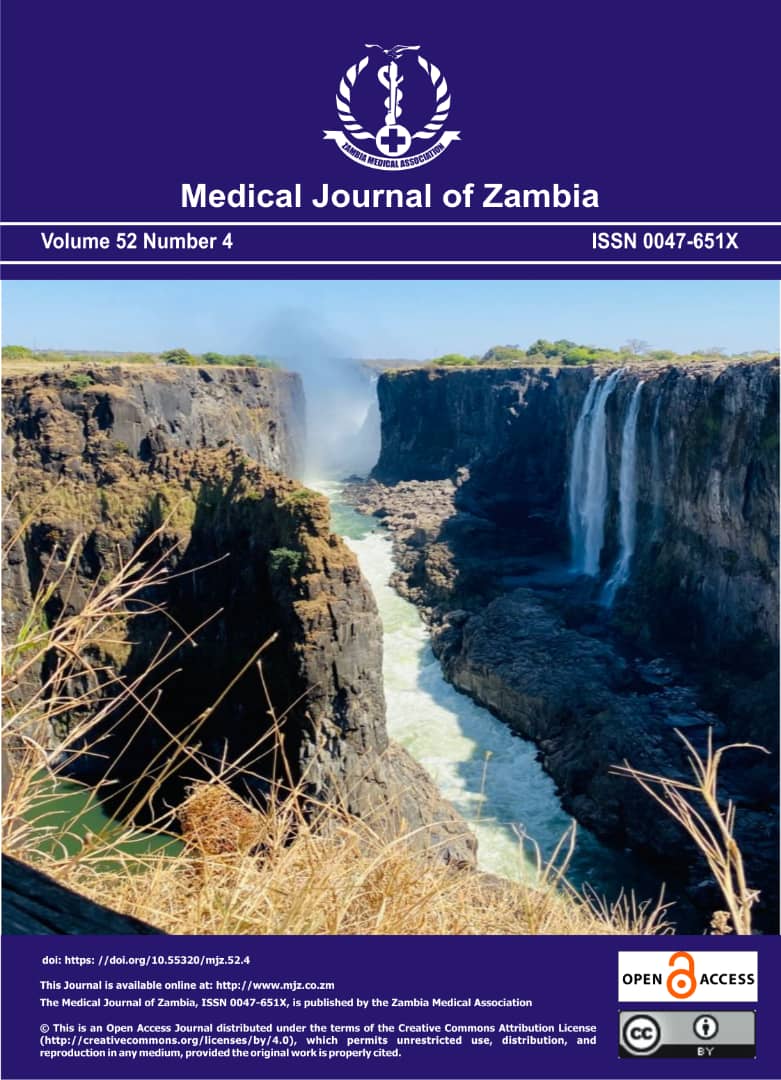Knowledge and Perceptions of Post-Operative Physiotherapy Management among Women with Obstetric Fistula: Experience at Mansa General Hospital, Zambia
DOI:
https://doi.org/10.55320/mjz.52.4.697Keywords:
knowledge, perception, obstetric fistula, post-operative physiotherapy, womenAbstract
Background: Obstetric fistula, resulting from neglected obstructed labour or childbirth injuries, can benefit from post-repair physiotherapy to enhance recovery. However, it is uncertain whether women in Mansa District are aware of the importance of physiotherapy in improving post-operative recovery.
Objective: To explore knowledge and perceptions of post-operative physiotherapy management among women with obstetric fistula at Mansa General Hospital in Luapula Province, Zambia.
Methods: This study used a qualitative phenomenological design and involved 12 women selected purposively, seeking obstetric fistula repair and rehabilitation at Mansa General Hospital in Luapula Province, Zambia. In-depth interviews guided by a structured interview guide were conducted, and thematic analysis was used to analyse the data, ensuring ethical standards were maintained.
Results: The study found that participants had limited knowledge about obstetric fistula and the role of physiotherapy in its treatment. However, those who underwent at least two weeks of post-operative pelvic floor muscle training experienced significant improvements, especially in bladder control. Challenges in accessing physiotherapy included logistical issues, transportation difficulties, insufficient funds, lack of awareness about physiotherapy services, unavailability of trained physiotherapists in local facilities, and issues with remembering and understanding exercises taught during sessions.
Conclusion: The study concluded that most women at Mansa General Hospital were unaware of physiotherapy's role in managing obstetric fistula, due to limited information and lack of local physiotherapy services. To enhance awareness and utilization of physiotherapy, the study recommends improving literacy and increasing the availability and accessibility of essential healthcare services, including rehabilitation, in the region. This would help better support women with obstetric fistula in the area.
Downloads
Downloads
Published
Issue
Section
License
Copyright (c) 2025 Medical Journal of Zambia

This work is licensed under a Creative Commons Attribution-NonCommercial 4.0 International License.









